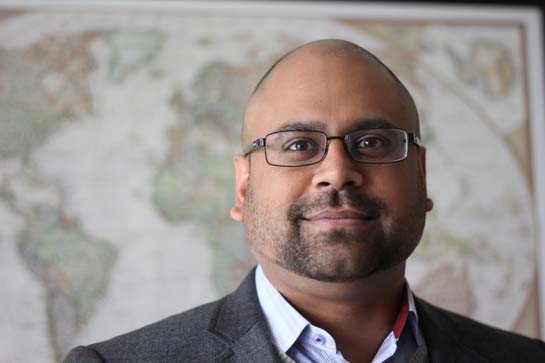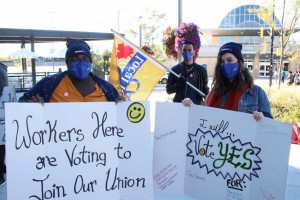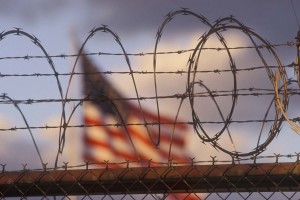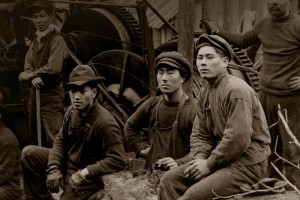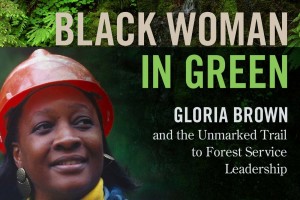When I teach about racism, I usually begin with a process of reflection on racism as a concept that is bigger than any one person's systems of belief, bias or prejudice. The goal is to help students appreciate that racism, although a social, historical, and political entity that changes and shifts, also exists outside of individuals in relation to other individuals. The "cure" for racism isn't always to point out the "racist" or to provide "education" about "other types of people." (That kind of "education," ironically, reinforces racism by suggesting people can be divided into homogenous "types.")
We talk about racism as a discourse, or a "way" of talking about people. We talk about it as an ideology that carries with it beliefs at individual, social and societal levels; a set of manufactured ideas about hereditary or genetic differences that rationalizes human hierarchy and social disadvantage.
These beliefs turn on seemingly observable physical traits and behavioural attributes that are instead arbitrary products of the many accidents of history. Some of these are conscious beliefs and others are subsumed within law, policies and practices, often making them invisible to those who are privileged by them.
KNOWING WE'VE BEEN RAISED IN RACISM
My hope is that eventually, when people are ready, we can come to understand that now, in the present time, we have been raised in environments forged within racist contexts. These include personal relationships (family structures and ideas of family-often driven by Western nuclear modelling as ideal); social systems (schools, police, neighbourhoods), societal structures (policy, law, professional practices); and even languages (discourse and ideology).
We often use the global historical example of European colonialism from the 1500s onwards to discuss how European ideas of culture, language, politics, sexuality, race, knowledge, technology, religion and the like were made to be understood as superior. During the colonial period this supremacy was wielded to rationalize the migration of large quantities of people to the Americas, with the inherent belief that no "civilizations," as understood through European eyes, existed on these lands. Displacement, reserve systems, oppression, subjugation and genocide of Indigenous peoples came with these kinds of relations.
What we learn from examining this historical example is not to develop a disdain for immigrants or to privilege those who were "here first," but to understand the errors of thinking and doing that resulted from one set of groups laying claim to space and to resources without considering these as being on a common territory and of common interest; and without sharing resources in ways that were mutually respectful, reciprocal, and validating.
We talk about how language of the "civilized" becomes synonymous with European language. English, Spanish, French, Dutch language, educational systems, democratic processes, religions, legislative structures, juridical systems, and other institutions in general became the standards for most colonies and for the colonized.
LEARNING HOW A LANGUAGE BECOMES "INFERIOR"
The languages, knowledges and systems of the colonized were rendered inferior and uncivilized. Forced religious assimilation practices, enslavement, indentureship, and the exploitation of people, land, labour and resources were all rationalized.
What we are left with are systems, structures, and the resultant social relations designed to initiate and to perpetuate colonial projects. The projects were designed to rationalize white supremacy, social order, human hierarchy, and enforce these orders to ensure that colonization occurred by erasing what was there and supplanting it with European structures.
These systems were never designed to be "multicultural" or to recognize others as equals, to include, or have equitable outcomes for all peoples. These systems were designed to remake Europe elsewhere, to hold white skin as superior and white systems and structures as supreme.
What we also learn is how important language really is, and how integral it is to designing such systems: People learned to talk about their colonial projects by using language that was socially palatable at the time. When the language of slavery became unpalatable, for example, the language of international labour, indentureship, and migrant work was used.
CANADIAN COLONIAL PRACTICE
Residential schools in Canada, the practice of chattel slavery on the lands that became Canada in the 17th Century, the Canadian reserve system that was used to design South African Apartheid, the Chinese head tax system, and the exploitation of South Asian and Chinese labourers in Canada for the Canadian Pacific Railway and in the lumber industry; the immigration system's definition of prohibited classes and notions of undesirability that restricted people based on race, ability, sexuality — notions based on eugenic ideas of hereditary defectiveness: these are all Canadian examples of colonial practices that instilled racist policies, practices and laws.
This line of history has not been broken. Our immigration systems still penalize people of colour: They are the ones most identified for suspected criminality, the most often deported, and the most often detained. Our criminal justice system has been criticized for its complicity with racism, as have our healthcare systems, our employment, and our education systems.
When we are able to pan out and look at history through this broader lens, with special attention given to its systems and structures, we can appreciate that racism is so much more than a personal bias or prejudice. We can appreciate how it infuses (often invisibly) our rationalizing of the above-mentioned racial disparities, how it infuses the ways in which we talk about them, and that we are talking about them from within a discourse and an ideology derived from colonialist projects.
We can appreciate how these ideas of human hierarchy and social order have become "real," and that we now live out the material realities of these ideas as they carry out their design: They lock up, rather than provide healthcare to, people of colour. They criminalize rather than educate people of colour. They eject rather than employ people of colour.
We can also begin to appreciate how we all, though each one of us is differently positioned by history, can be and are complicit with systems and structures that are inherently racist.
CHANGING PERSPECTIVES
In my class, things usually take a turn at this point. When we see the common roots and products of history that have us all implicated in a system of unfairness, our perspectives change. From a place of complicity, it is hard to blame anyone. We can ask for levels of accountability and demand change from those in and with positions of power, but it is what and how we demand that is of most historical importance. We can begin to understand how we can intervene from our specific social locations or identity positions to effect change.
For me, I came to understand how specific areas of the forensic mental health system were targeting people of colour and how criminal justice, immigration and mental health policy, practice and law, and the professionals involved, were participating in this ongoing neo-colonial racist project. I came to understand it as a person of colour, raised in Canada, who worked for a system that was doing this work under the guise of helping." I came to understand that some very well-intentioned people and some competently applied policy and law could enact historical forms of racialized violence on people of colour.
From these vantage points, one can also appreciate a kind of racism historically as well as the current manifestation of it within language, practice, policy and law. Racism can be about the "racist," but often racism is sustained and subsumed within the language and practice of everyday life.
The class and its lessons focus less on actual historical and contemporary content and events, and more on the analytical practice that helps us to be continual students of (and contributors to) history — this analytical practice that draws connection into the now so we can recognize our complicity and place in the historical orders of human hierarchy and social advantage that enlist whiteness and its constituent systems and structures as supreme.
Looking at particular social movements and where and how they have intervened; the places for allies; and recognizing the agency, power and resilience of the subjugated are also key points for reflection and learning.
THE RISE OF RACIST PROPAGANDA
About one week after Donald Trump won the U.S. Presidential election, flyers were posted in the Westdale neighborhood of Hamilton, Ontario and at McMaster University. The posters read, "Tired of anti-white propaganda" and "It's only racist when white people do it," they cited "alt-right" and a number of "alt-right" web resources and YouTube videos. Similar posters were found at McGill University. There has also been an increase in reported hate-related incidents and violence in Canada.
Donald Trump, who has publicly endorsed and supported racist immigration policy and practices, used sexually assaultive language directed towards women and made derogatory impressions of people with disabilities was said to have consolidated the so-called Alt-right during his election campaign. Though the term was coined by white supremacist Richard B. Spencer, who also runs a white supremacist "think-tank" called The National Policy Institute, the alt-right functions more as a discourse rather than as a cohesive group, and has been associated for the time being with those who reject mainstream conservativism in the United States.
The use of the term alt-right is, in other words, just another example of how people learn to talk about supremacist projects by using language that is socially palatable at the time. Alt-right is a palatable term used to rationalize and consolidate ideas of white nationalism, white supremacy, anti-immigration, Islamophobia, homophobia, anti-Semitism, misogyny and anti-feminism.
The discourse used by alt-right affiliates often rejects and opposes "political correctness." Political correctness being yet another palatable term wielded against people and projects attempting to redress racism, homophobia, ableism, gender-based violence and discrimination.
The "alt-right" believes non-discriminatory and non-oppressive language and speech are inconvenient requirements when we are communicating in public and political spaces. The concept of political correctness itself presumes that bigotry and hatred are well supported in the private lives of many Americans and that "correctness" is some kind of authoritarian intrusion onto free speech and behavior.
But what is always left out in the "alt-right's" defence of free speech is this: the harm principle. There is freedom of expression so long as no harm comes to others. And hate speech violates this very basic principle. (References to John Stuart Mill, his articulation of the harm principle, and liberal ideas also come with a legacy of white supremacy, it must be noted.)
The discourse of the alt-right assumes that "America" belongs to white people and immigrants and people of colour are intruders and exploiters, illegals and threats to what is rightfully "theirs." The support of wall building, mass deportations and the use of torture (Trump has publicly endorsed waterboarding "or worse"), and the appeal to white nationalism should trigger the historical imaginations of all of us.
What might not be entirely helpful in this moment is to focus on the racist beliefs of individuals alone. What might be of more historical importance is how we examine these ideas for the violence they are perpetrating now, while tracing the potential harm they will do in the future.
It is critical that we look at just how well these ideas paired with the critiques levied against mainstream politics in the U.S. When job loss, fear of external threats, economic troubles and crime, healthcare issues and education issues have been historically relied upon as the rationalizing terrain of racist projects and also as justifiers of racism, they can be easy vehicles for white supremacist discourse and racist policy.
We are witnessing a re-rationalizing of a neo-colonial undertaking. People who feel they have a claim to space and resources due to their self-proclaimed ideas of supremacy are trying to take back what they think belongs solely to them. In the past we have seen this kind of talk and polarization result in genocide, slavery, apartheid, the erasure (or attempted erasure) of Indigenous languages, knowledge, and ways of life, the building of walls, the restrictions or outright elimination of freedom (including speech). We've seen mass displacements, forced migration, death camps, and internments.
NAME THINGS FOR WHAT THEY TRULY ARE
What does all this mean for us here in Canada? We need to be vigilant in our approach, name things for what they truly are and identify the harmful practices, languages, policies, and laws for their complicity in racism. This is not only about who to blame; it is about how we stop a historical form of racialized violence before it lays claim to everything and everyone. The "alt-right" and calls to be "politically correct" are guises for hatreds and exclusions, wielded to rationalize systems and structures of subjugation.
All of us need to identify our complicities and the complicit, to hold institutions and practices accountable for their strategic use of language to justify atrocities. This is not a time to only be compliant with the laws and policies that govern us but to also question them for who they privilege and who they oppress.
When more than one nation has taken this kind of turn (with Brexit and now the U.S.), where anti-immigration and white nationalism are beginning to re-rationalize hatred and systemic violence, things have gone too far. The posters at McMaster are an example of this re-rationalizing spreading.
During the resistance to this wave of divisiveness and disrespect, we must also be vigilant to not reproduce the kind of reaction, responses, or language that carries the very racism and violence we are targeting within it (i.e. "here first" discourses, criminalization, superiorizing/inferiorizing etc.).
Who will you write to? Who will you mobilize with? Who will you march with? Who will you hold accountable for a better future? We all have to begin with ourselves and from there, history is calling to us to act together to peel away every layer of policy, law, practice, and language that contributes to the rationalizing and perpetuation of racism.
If not now, then when? If not us, then who?
Ameil Joseph is an assistant professor in the School of Social Work at McMaster University. He has presented and advocated across Canada, in the US and in Europe on issues related to racism, critical mental health and social justice; and has over a decade of experience working in and with mental health, criminal justice and immigration systems and services.


